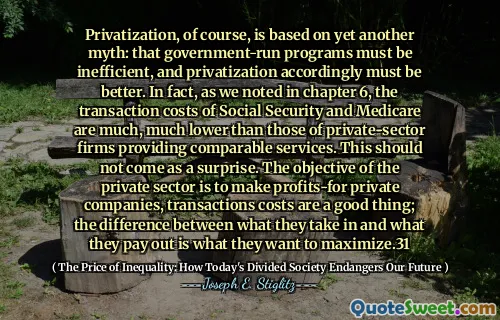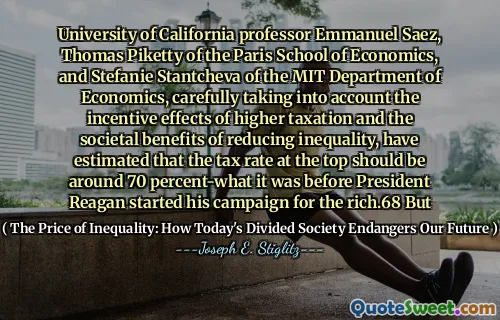The book "The Price of Inequality" by Joseph Stiglitz addresses the growing economic disparity in society and its implications for the future. Stiglitz argues that inequality is not just an ethical concern but also a significant barrier to economic progress. He illustrates how the wealth gap can lead to a range of social issues, including diminished opportunity and the erosion of democracy, as wealth influences political power and policy-making.
Stiglitz delves into the systemic factors that contribute to inequality, including globalization, technological changes, and the financial sector's role. He highlights how these forces have concentrated wealth in the hands of a few, while the majority struggle with stagnating wages and job insecurity. The book also critiques the current economic policies that favor the wealthy, suggesting that they create a feedback loop that perpetuates inequality.
Furthermore, Stiglitz offers solutions to address these issues, advocating for more equitable policies and reforms. He emphasizes the need for a fairer tax system, improved access to education, and stronger labor rights to help reduce inequality. Ultimately, "The Price of Inequality" is a call to action, urging readers to recognize the dangers of a divided society and to strive toward a more inclusive economic future.
Loading...
More »
Today Birthdays
1973 -
Stephenie Meyer
1963 -
Paul Bloom
1822 -
Matthew Arnold
1922 -
Ava Gardner
1944 -
Karl Marlantes
1945 -
Nicholas Meyer
1991 -
Louis Tomlinson
1745 -
Benjamin Rush
1907 -
I. F. Stone
1818 -
Eliza Cook
1962 -
Kate Spade
1838 -
John Morley
1818 -
James Prescott Joule
1698 -
William Warburton
1960 -
Carol Vorderman
1971 -
Ricky Martin
1959 -
Lee Daniels
1940 -
Anthony Fauci
1976 -
Evan Osnos
1961 -
Mary Barra
1946 -
Jeff Sessions
1943 -
Tarja Halonen
1969 -
Ed Miliband
1970 -
Will Oldham
1889 -
Patrick MacGill
1922 -
Jonas Mekas
1913 -
Ad Reinhardt
1943 -
Suzy Menkes
1949 -
Randy Neugebauer

